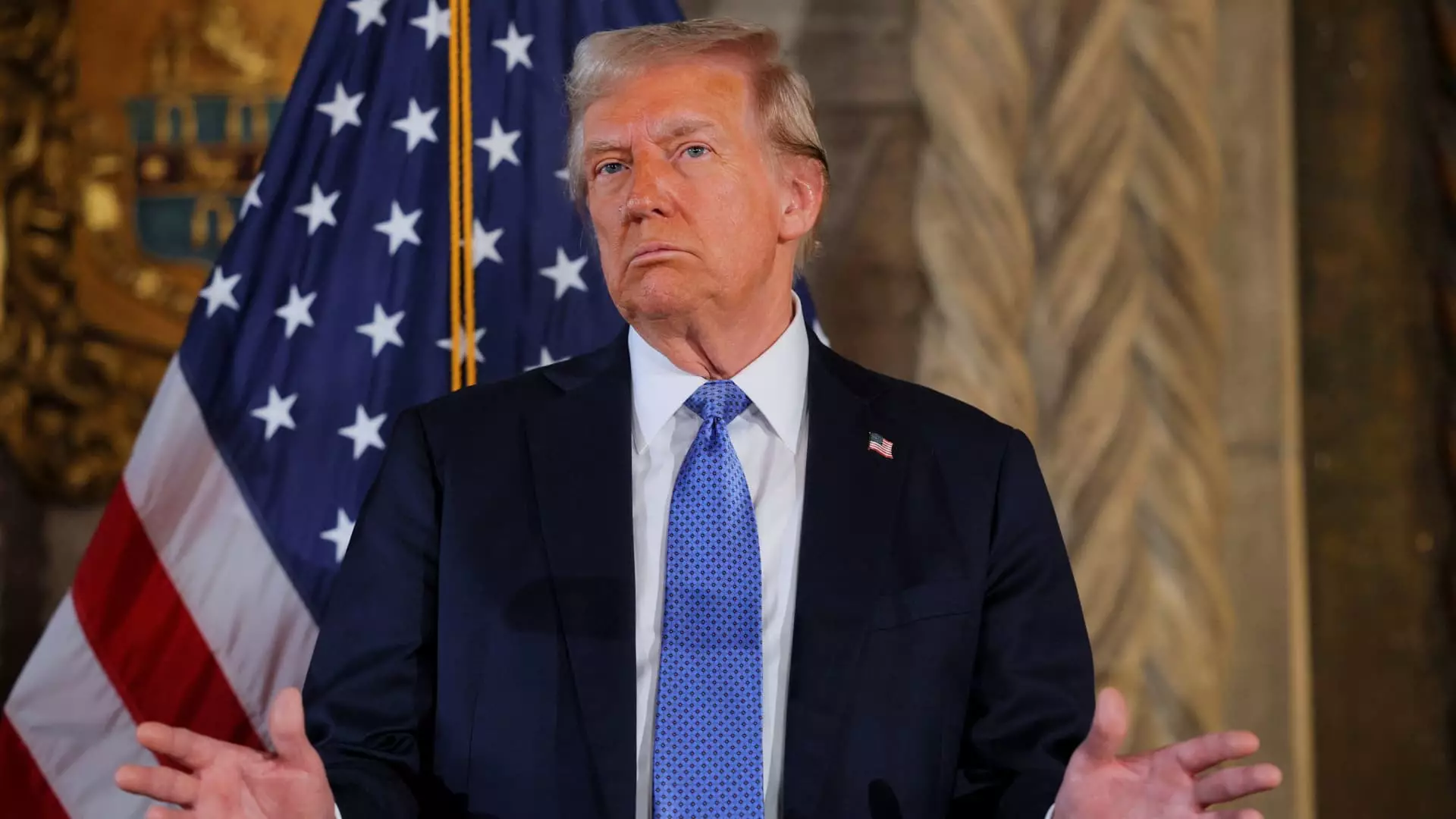As the geopolitical landscape evolves, the dynamics of trade relations between the United States and the European Union have become increasingly complex. President-elect Donald Trump has recently ignited debates concerning these relations with a statement emphasizing the necessity for the EU to mitigate its trade deficit with the U.S. through substantial purchases of American oil and gas. This political maneuver not only highlights Trump’s assertive approach to international trade but also underscores existing tensions surrounding tariffs and energy dependency.
In 2022, the United States recorded a staggering $131.3 billion trade deficit in goods and services with the European Union. This figure speaks volumes about the imbalances perceived by the U.S. and reflects a growing frustration that has been echoed in various political arenas. Trump’s declaration that the EU must “make up” for this deficit or face significant tariffs illustrates an escalating strategy that seems rooted in transactional negotiations rather than collaborative dialogue.
Responses from European Officials
The reaction from EU diplomats to Trump’s expectations was measured yet candid. The anonymous responses from European officials indicate a cautious awareness of the implications of Trump’s approach. One diplomat noted that energy, as a focal point for increasing U.S. purchases, presents a “good option” for mitigating the trade deficit. Meanwhile, German Chancellor Olaf Scholz reportedly had discussions with Trump, hinting at a proactive stance from EU leaders in navigating these contentious waters.
European Council President António Costa articulated a commitment to enhancing transatlantic ties even in the face of Trump’s provocative assertions. His comments during a recent summit show a willingness to engage with the U.S. constructively, suggesting that EU leaders aim to foster collaboration rather than succumb to protectionist pressures.
Trump’s penchant for wielding tariffs as a bargaining chip has been a hallmark of his political narrative since his initial presidential campaign. Economists have consistently warned that such aggressive trade policies may provoke inflationary pressures domestically, creating an environment of uncertainty. This precarious economic climate raises critical questions about the feasibility and potential repercussions of his tariff threats.
According to experts, it remains doubtful how far Trump will go in implementing his plans and whether they are genuinely intended as starting points for negotiations. Enrico Letta, the former Italian Prime Minister, has hinted that the EU should prepare for adversity and consider retaliatory measures. He perceives Trump’s transactional approach as flawed and believes that intertwining energy and tariffs blurs the lines between separate economic issues.
The U.S. remains a vital player in the global energy market, particularly for the EU, which has been seeking alternatives to Russian liquefied natural gas (LNG). In recent discussions, European Commission President Ursula von der Leyen indicated a strategic pivot, with intentions to replace Russian energy sources with U.S. products. This shift not only creates opportunities for deeper energy relations but also reveals an evolving dependency that could be manipulated during negotiations.
The prospect of increasing U.S. energy purchases by the EU points to a mutually beneficial arrangement but comes at a cost. It compels European leaders to weigh the benefits of compliance against the potential for economic repercussions resulting from surrendering to Trump’s tariff threats. While a more significant trade in energy appears promising, it demands a delicate balance of the EU’s diplomatic sovereignty and its economic interests.
A Nuanced Path Forward
The relationship between the U.S. and the EU is at a critical juncture, one that requires multi-faceted solutions beyond mere trade-offs. As both parties grapple with Trump’s bold assertions, a collaborative and nuanced approach may be the key to revitalizing transatlantic relations amidst growing protectionism. Is it realistic for the EU to hedge against the whims of U.S. energy policies while maintaining a stable economic framework? The answer lies in strategic diplomacy, economic adaptability, and a keen understanding of interdependence in a rapidly changing global environment.
As world economies continue to navigate complex trade corridors, the interactions between the U.S. and the EU may serve as a bellwether for global trade practices influenced by nationalism and economic strategy. The challenge now is to find common ground that acknowledges each party’s interests while steering clear of an outright trade war that could derail progress. The future remains uncertain, but open dialogue and cooperation may illuminate a path forward.


Leave a Reply